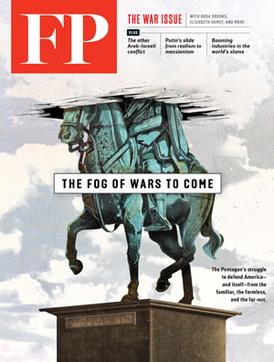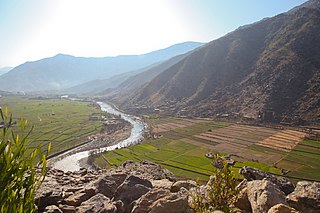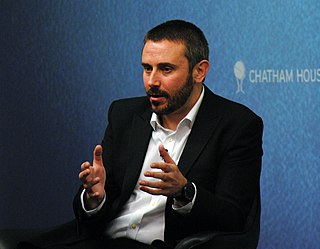Related Research Articles

Médecins Sans Frontières, named Doctors Without Borders in English, is a charity that provides humanitarian medical care. It is a non-governmental organisation (NGO) of French origin known for its projects in conflict zones and in countries affected by endemic diseases. The organisation provides care for diabetes, drug-resistant infections, HIV/AIDS, hepatitis C, tropical and neglected diseases, tuberculosis, vaccines and COVID-19. In 2019, the charity was active in 70 countries with over 35,000 personnel; mostly local doctors, nurses and other medical professionals, logistical experts, water and sanitation engineers, and administrators. Private donors provide about 90% of the organisation's funding, while corporate donations provide the rest, giving MSF an annual budget of approximately US$1.63 billion.

Gulbuddin Hekmatyar is an Afghan politician, former mujahideen leader and drug trafficker. He is the founder and current leader of the Hezb-e-Islami Gulbuddin political party, so called after Mohammad Yunus Khalis split from Hezbi Islami in 1979 to found Hezb-i Islami Khalis. He has twice served as Prime Minister during the 1990s.
Humanitarian aid workers belonging to United Nations organisations, PVOs / NGOs or the Red Cross / Red Crescent are among the list of protected persons under international humanitarian law that grant them immunity from attack by belligerent parties. However, attacks on humanitarian workers have occasionally occurred, and become more frequent since the 1990s and 2000s. In 2017, the Aid Worker Security Database (AWSD) documented 139 humanitarian workers killed in intentional attacks out of the estimated global population of 569,700 workers. In every year since 2013, more than 100 humanitarian workers were killed. This is attributed to a number of factors, including the increasing number of humanitarian workers deployed, the increasingly unstable environments in which they work, and the erosion of the perception of neutrality and independence. In 2012 road travel was seen to be the most dangerous context, with kidnappings of aid workers quadrupling in the last decade, reaching more aid workers victims than any other form of attack.

James Jude Orbinski, is a Canadian physician, humanitarian activist, author and leading scholar in global health. Orbinski was the 2016-17 Fulbright Visiting professor at the University of California, Irvine, and as of September 1, 2017, he is professor and inaugural director of the Dahdaleh Institute of Global Health Research at York University in Toronto, Ontario, Canada. He was previously the CIGI Chair in Global Health Governance at the Balsillie School of International Affairs and Wilfrid Laurier University (2012-2017), Chair of Global Health at the Dalla Lana School of Public Health (2010-2012) and full professor at the Faculty of Medicine, University of Toronto (2003-2012), where he was the founding Saul Rae Fellow at Massey College. Orbinski's current research interests focus on the health impacts of climate change, medical humanitarianism, intervention strategies around emerging and re-emerging infectious diseases, and global health governance.

Foreign Policy is an American news publication founded in 1970 focused on global affairs, current events, and domestic and international policy. It produces content daily on its website and app, and in four print issues annually.
Janine di Giovanni is an author, journalist, and war correspondent currently serving as the Executive Director of The Reckoning Project. She is a senior fellow at Yale University's Jackson Institute for Global Affairs, a non-resident Fellow at The New America Foundation and the Geneva Center for Security Policy in International Security and a life member of the Council on Foreign Relations. She was named a 2019 Guggenheim Fellow, and in 2020, the American Academy of Arts and Letters awarded her the Blake-Dodd nonfiction prize for her lifetime body of work. She has contributed to The Times, Vanity Fair, Granta, The New York Times, and The Guardian.

Kunar is one of the 34 provinces of Afghanistan, located in the northeastern part of the country. Its capital is Asadabad. Its population is estimated to be 508,224. Kunar's major political groups include Wahhabis or Ahl-e- Hadith, Nazhat-e Hambastagi Milli, Hezb-e Afghanistan Naween, Hezb-e Islami Gulbuddin.

The Northern Alliance, officially known as the United Islamic National Front for the Salvation of Afghanistan, was a military alliance of groups that operated between late 1996 to 2001 after the Islamic Emirate of Afghanistan (Taliban) took over Kabul. The United Front was originally assembled by key leaders of the Islamic State of Afghanistan, particularly president Burhanuddin Rabbani and former Defense Minister Ahmad Shah Massoud. Initially, it included mostly Tajiks but by 2000, leaders of other ethnic groups had joined the Northern Alliance. This included Karim Khalili, Abdul Rashid Dostum, Abdullah Abdullah, Mohammad Mohaqiq, Abdul Qadir, Asif Mohseni, Amrullah Saleh and others.

The Hezb-e-Islami Gulbuddin, also referred to as Hezb-e-Islami or Hezb-i-Islami Afghanistan (HIA), is an Afghan political party and paramilitary organization, originally founded in 1976 as Hezb-e-Islami and led by Gulbuddin Hekmatyar. In 1979, Mulavi Younas Khalis split with Hekmatyar and established his own group, which became known as Hezb-i Islami Khalis; the remaining part of Hezb-e Islami, still headed by Hekmatyar, became known as Hezb-e Islami Gulbuddin. Hezbi Islami seeks to emulate the Muslim Brotherhood and to replace the various tribal factions of Afghanistan with one unified Islamic state. This puts them at odds with the more tribe-oriented Taliban.

The New Humanitarian is an independent, non-profit news agency focusing on humanitarian stories in regions that are often forgotten, under-reported, misunderstood or ignored.

The 1992–1996 Afghan Civil War took place between 28 April 1992—the date a new interim Afghan government was supposed to replace the Republic of Afghanistan of President Mohammad Najibullah—and the Taliban's conquest of Kabul establishing the Islamic Emirate of Afghanistan on 27 September 1996.

David Stephenson Rohde is an American author and investigative journalist, he is the former online news director for The New Yorker and now serves as Senior Executive Editor, National Security, for NBC News. While a reporter for The Christian Science Monitor, he won the Pulitzer Prize for International Reporting in 1996 for his coverage of the Srebrenica massacre. From 2002 until 2005, he was co-chief of The New York Times' South Asia bureau, based in New Delhi, India. He later contributed to the newspaper's team coverage of Afghanistan and Pakistan that received the 2009 Pulitzer Prize for International Reporting and was a finalist in his own right in the category in 2010. He is also a global affairs analyst for CNN.

Jeremy Scahill is an American investigative journalist, writer, a founding editor of the online news publication The Intercept, and author of Blackwater: The Rise of the World's Most Powerful Mercenary Army, which won the George Polk Book Award. His book Dirty Wars: The World Is a Battlefield was published by Nation Books on April 23, 2013. On June 8, 2013, the documentary film of the same name, produced, narrated and co-written by Scahill, was released. It premiered at the 2013 Sundance Film Festival.
The Nasher are a noble Afghan family and Khans of the Pashtun Kharoti (Ghilji) tribe. The family is originally from Qarabagh, Ghazni but founded modern day Kunduz in the early 20th century and lived there until the end of the Barakzai dynasty in the late 20th century.

Shah-Do Shamshira Mosque, the name translates to Mosque of the King of Two Swords, is a yellow two-story mosque in Kabul, Afghanistan on Andarabi Road, just off the Kabul River and the Shah-Do Shamshira bridge in the center of the city. It was built during the reign of Amanullah Khan (1919–1929). It was modelled after the Ortaköy Mosque in Istanbul. The design of this mosque is quite unusual for Islamic religious architecture. Its Italian decorative stucco creates an interesting effect that some describe as ‘Afghan Baroque’.
The Mosque of the Hair of the Prophet, also known as Jame Mui Mobarak, is a mosque near the Kabul Bazaar, in the city of Kandahar, Afghanistan.

The Shura-e Nazar was created by Ahmad Shah Massoud in 1984 at the northern provinces of Takhar, Badakhshan, Balkh and Kunduz, during the Soviet-Afghan War. It comprised and united about 130 resistance commanders from 12 northern, eastern and central regions of Afghanistan.

Mirwais Jalil, was an Afghan journalist for the BBC World Service near Kabul, Afghanistan. Jalil has been praised for being crucial in the BBC's coverage of the Afghanistan civil war and as a highly credible journalist. On 29 July 1994, he was returning from an interview with Prime Minister Gulbuddin Hekmatyar when masked men kidnapped him, and Jalil was found murdered the next morning outside of Kabul. Jalil's aggressive coverage of the civil war between the mujahedeen was seen as authoritative and is said to be the reason of his fate.
Ben Taub is an American journalist who is a staff writer for The New Yorker magazine. He has written for the magazine about a range of subjects related to jihadism, crime, conflict, and human rights, mostly in Africa, Europe, and the Middle East.

Manuel Mogato is a Filipino Pulitzer Prize-winning journalist and the editor-at-large of independent news website PressONE.ph. Concurrently, he serves as the defense editor of One News, a television news channel under Cignal TV.
References
- ↑ "Home". global-geneva.com.
- ↑ Girardet, Edward (5 September 2011). "The NewsHour". PBS.
- ↑ Lieven, Anatol. "Article on Killing the Cranes". Review. New York Review of Books.
- ↑ Girardet, Edward. "Afghanistan: The Soviet War". Routledge.
- ↑ Girardet, Edward (1995). "Somalia, Rwanda and Beyond: The role of international media in wars and humanitarian crises". Book. Columbia University Press & Crosslines Report. OL 562753M. Archived from the original on 2014-03-01.
- ↑ Girardet, Edward. "Essential Field Guide to Afghanistan 4th edition". Crosslines Essential Media. Archived from the original on 2020-11-01.
- ↑ Girardet, Edward (16 June 2022). "Killing the Cranes: A Reporter's Journey Through Three Decades of War in Afghanistan". Book. Chelsea Green, Vermont.
- ↑ Girardet, Edward. "Il Parait Que Vous Voulez Me Tuer". Book. Editions Les Arènes, Paris. Archived from the original on 2014-03-05.
- ↑ "Home". global-geneva.com.